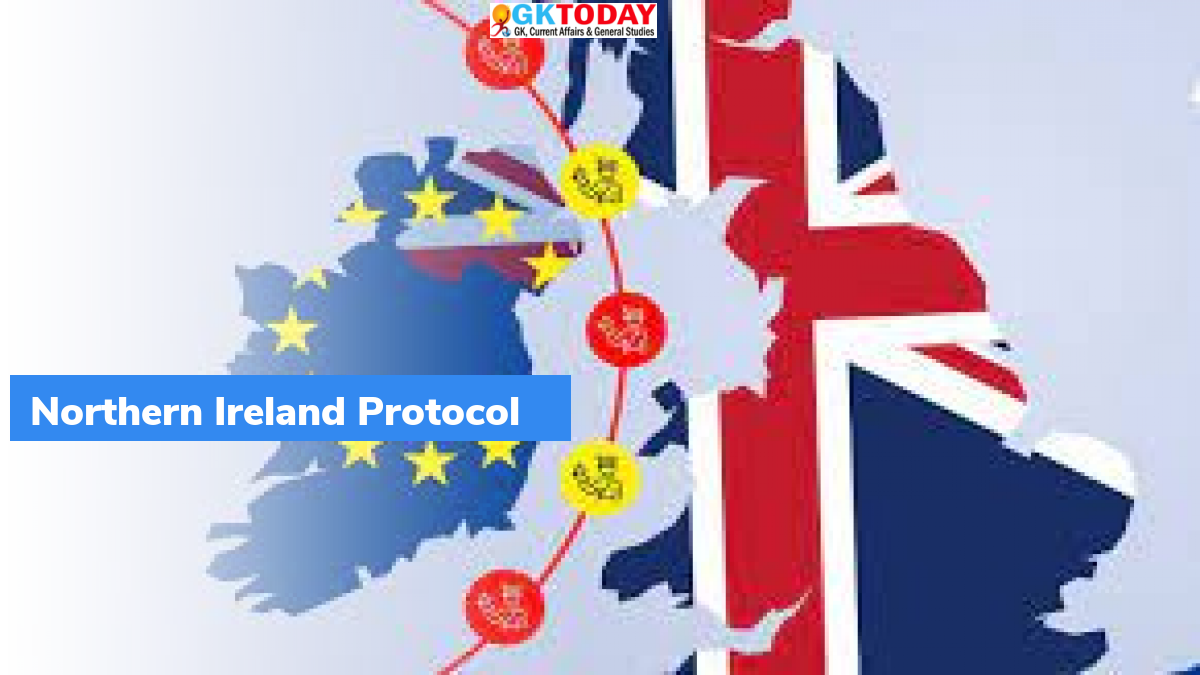What is Northern Ireland Protocol?
The Northern Ireland protocol was designed to prevent checks across the border between Northern Ireland (US) and the Republic of Ireland (EU), following Brexit.
Highlights
- The Protocol came into force in the beginning of 2021.
- It has resulted into disagreements between the UK and EU as it disrupted trade between Great Britain and Northern Ireland.
- The UK government has been calling to rewrite the deal.
What was the need of Northern Ireland Protocol?
- During Brexit negotiations, all the parties agreed that protecting the 1998 Northern Ireland peace deal is an absolute priority.
- This protocol means that, keeping the land border open and avoiding setting up new infrastructure like cameras and border posts.
- This was easy to do when Ireland and Northern Ireland were part of the EU. Both the parties automatically shared the same EU rules on trade. No checks were required on goods travelling between them.
- However, in the backdrop of Brexit, new arrangement was required because EU requires goods like milk and eggs to be checked when they arrive from non-EU countries. While products like chilled meats are not allowed to enter EU at all.
Northern Ireland Protocol
- Under this protocol it was agreed that Northern Ireland will continue to follow EU rules on product standards in order to prevent checks across the border.
- Goods entering Northern Ireland from Scotland, England or Wales would be inspected.
What changes is the UK government calling for?
Boris Johnson had signed an agreement in 2019 and promised that it would not create any inspection on goods moving between Northern Ireland and Great Britain. Now, the government is of the view that this protocol represented a huge compromise by the UK and accused the EU for applying it too rigidly. Thus, the Brexit Minister, Lord Frost, proposed some changes in the protocol. He has proposed a new mechanism under which goods would be able to circulate freely in Northern Ireland if they comply with either EU or UK regulations.
Month: Current Affairs - October, 2021


